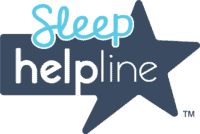What Project Sleep Means To Me – Guest Post by Bridgette Snyder
Prior to October 2012, sleep was just another part of life I struggled to control. As a teenager, I drank coffee to deal with the tiredness that I thought was normal. And when I joined the Navy in 2001, I became part of a military culture and lifestyle that, out of necessity, embraces poor sleep health practices and wears sleep deprivation like a badge of honor.
As coffee alone no longer got me to the level of alertness I needed, I turned to energy drinks. And as my ability to stay alert during the day waned, so did my ability to sleep at night. Combined with the stressors of shift work and other military lifestyle demands, my health began to suffer.
High blood pressure was followed by kidney and heart problems, chronic pain, depression, weight gain, and panic attacks. At the age of 28, I was on a cocktail of drugs that included morphine, benzodiazepines, antidepressants, and blood pressure medications. I walked with a cane. I could no longer, in good conscience, stay in the Navy.
But as I began my new career with the Department of Defense, my health continued to get worse. I began to fall asleep at work, and behind the wheel of my car. I was terrified that I would lose my job, or worse, my life. Neurologists thought I was having seizures, but the tests said otherwise. Finally, I was referred to a sleep specialist.
The diagnosis of narcolepsy that the sleep specialist gave me saved my life, and changed my view of sleep and sleep disorders forever for the better. Thanks to being treated for narcolepsy and implementing lifestyle changes around my sleep schedule, I no longer have high blood pressure, chronic pain, or any of the problems I had previously that were due to extreme sleep deprivation and untreated narcolepsy.
Nobody deserves to suffer the way I did, whether it is due to undiagnosed sleep disorders, or a culture that does not value sleep health the way it should.
We need to change the way we see sleep. Sleep is a fascinating frontier of the human brain we have only begun to explore. And it’s just as important to your health as the food you eat, the sunscreen you wear, and the time you spend at the gym.
Because of this, sleep disorders and the people who suffer them deserve understanding and advocacy just as much as people with more recognizable diseases such as diabetes, MS, and cancer do.
So what does Project Sleep mean to me?
It means promoting naps over energy drinks for kids in schools and adults at work. It means awareness campaigns for misunderstood sleep disorders and the people who are affected by them. It means early diagnosis, better treatments, and even prevention of sleep disorders.
It means doing everything I can to prevent someone from having to go through what I did.
Project Sleep aims to make this dream a reality. Thanks for reading, and for your support!






2 Comments. Leave new
I do not go to bed at all some nights where can i get information about this project please
Bridgette, thank you so much for sharing your story! This brought tears to my eyes. I have been diagnosed with narcolepsy since 1989. However, I was so career driven I used excessive caffeine, energy drinks and pushed myself beyond what was good for my health. My employers never understood my narcolepsy diagnosis. Letters from my physicians were useless. Eventually, the chronic sleep deprivation led to chronic pain and other health conditions. I share the passion and mission of Project Sleep. Thank you for all that you do!